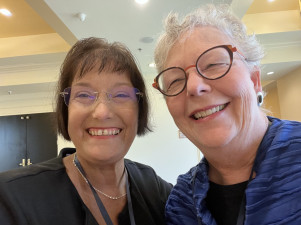By Kim Skehan, RN, MSN, HCS-D, COS-C
Director, Compliance, Regulatory & Quality
With the season for sleigh bells and street corner bell ringers underway, hospice advocates are quietly adding a few of their own alarm bells to the mix, calling for the hospice industry to sharpen its overall focus on preventative compliance and Medicare program integrity.
Prompted by concern over rapid growth of hospice providers in California and a handful of Southwestern states, as well as some recent high-profile press attracting nationwide attention to how we care for the terminally ill, advocacy groups are working together to be heard over the distractions of the season.
Their message is straightforward: Take your medicine. A comprehensive compliance approach aimed at hospice providers is good “preventive medicine” and essential for protecting hospice patients, compliant hospice organizations, and the Medicare program in general.
Bad press, good reminder
The latest reminder of just how important it is for hospice providers to prioritize proactive compliance comes in the wake of a New Yorker magazine article that lifted eyebrows and commanded response from top hospice advocacy organizations.
The article, titled How Hospice Became a For-Profit Hustle, appeared in November. The National Hospice and Palliative Care Organization (NHPCO) and the National Association for Home Care & Hospice (NAHC) acted quickly, issuing a joint statement as well as item-by- item talking points for their respective members that are designed to help hospice providers address any questions they may encounter about the article.
The joint statement between NHPCO and NAHC is available on both websites:
• Hospice organizations respond to propublica hospice article (NAHC)
• Hospice organizations respond to propublica hospice article (NHPCO)
Intensifying scrutiny
While these types of articles tend to sensationalize and create negativity, in this case, there may be a silver lining in the timing of the article. Hospice scrutiny is intensifying, and hospice advocates have been cautioning providers that there is a growing need to step up their compliance efforts.
The attention generated by the article may help direct the attention of hospice providers to the need to take proactive compliance action now. Among a laundry list of reasons for hospice providers to focus on assessing and improving their compliance are:
• New hospice quality reporting measures and a penalty structure that will implement more significant financial consequences in 2024 for failure to comply.
• New hospice survey and enforcement provisions set out under the Consolidated Appropriations Act (CAA) 2021 and implemented by CMS in the CY 2022 Final Rule for Hospice. These changes reinforce the need for compliance with Conditions of Participation (CoPs). At the time of this writing, we are expecting interpretive guidelines to be released at any time, and hospice providers are encouraged to review and refer to the new guidelines in structuring their compliance.
• Recent calls by the Office of Inspector General (OIG) for increasing audits and investigations for all healthcare providers to identify fraud, waste and abuse.
Rapid growth fuels concern
One of the concerns fueling increasing hospice scrutiny and attracting high-profile press is the industry’s sudden growth. California, Arizona, Nevada, and Texas in particular have seen an explosive rise in the number of new hospice providers over the past few years.
In fact, escalating numbers of new hospices in these states have promoted a coalition of advocacy groups to ask for increased federal oversight and perhaps even temporary moratoria to curb the expansion.
The National Association for Home Care & Hospice, LeadingAge, National Hospice and Palliative Care Organization and National Partnership for Healthcare and Hospice Innovation made those requests in a letter sent on Nov. 9 to Centers for Medicare & Medicaid Services (CMS) Administrator Chiquita Brooks-LaSure.
When similar activities were occurring in the home health spectrum, CMS took decisive action to maintain the integrity of the Medicare program through the imposition of temporary moratoria on the admission of new agencies in select areas of the country.
What hospices should do
Most hospice providers make sincere efforts to observe Medicare and Medicaid laws and regulations. When they fail to do so, it’s more likely to be due to misunderstanding or lack of knowledge than fraudulent intent.
But ignorance doesn’t insulate a provider from costly and time-consuming audits and investigations, or from the resulting penalties and, in some cases, prosecution that can result from program integrity scrutiny.
A full compliance assessment can identify vulnerabilities and show providers exactly where training or operational changes may be needed to reduce compliance risk and move forward with confidence.
SimiTree can help
SimiTree’s friendly and knowledgeable regulatory team is made up of current and former surveyors with experience across the healthcare spectrum. Our compliance team members are certified by CHAP and ACHC, and have the industry expertise to assist hospice agencies as they assess compliance risk, shore up survey readiness and take necessary measures to meet new and changing regulations.
We help freestanding and hospital-based hospices of various sizes across the country create an intrinsic survey readiness culture, with staff training and operational changes. Our thorough mock surveys, offered on-site as well as remotely, identify an agency’s vulnerabilities.
We work with organizations to develop and implement a work plan to prioritize and correct weak areas and sustain improvements for ongoing compliance.
SimiTree assists with all compliance and regulatory needs, from full compliance assessments to assistance during audits, appeals, implementation of Corporate Integrity Agreements (CIAs) and more. Use the form below to reach out to us today.
Editor’s Note: Author Kim Skehan is an industry advocate who works tirelessly on behalf of hospice organizations. She has been instrumental in crafting guidance and influence in quality improvements for hospice in her roles as a member of the NHPCO Regulatory Committee and NAHC Hospice Quality Committee.

Author Kim Skehan, left, with Judy Lund Person, VP, Regulatory & Compliance, NHPCO.

